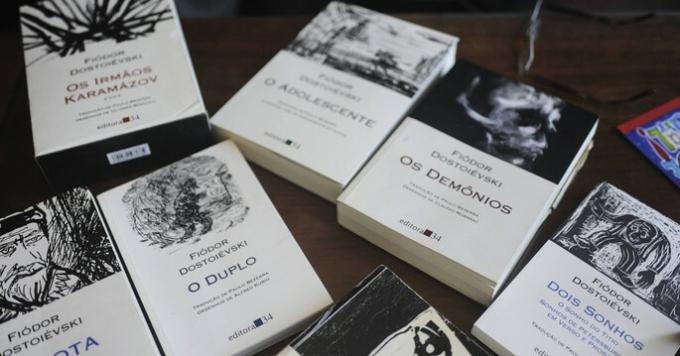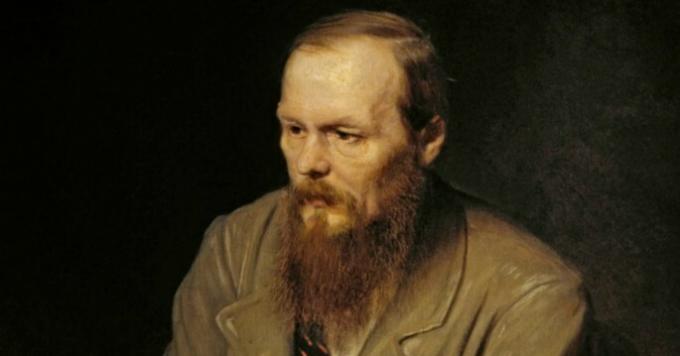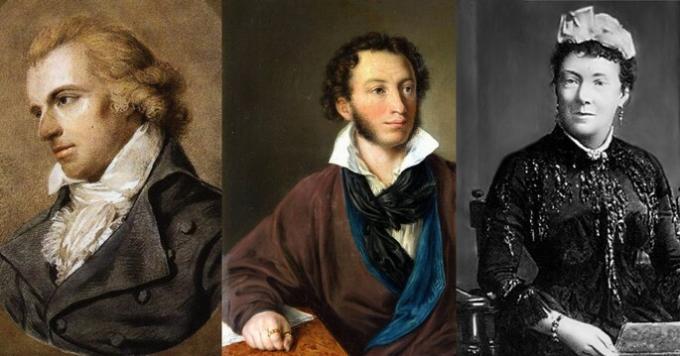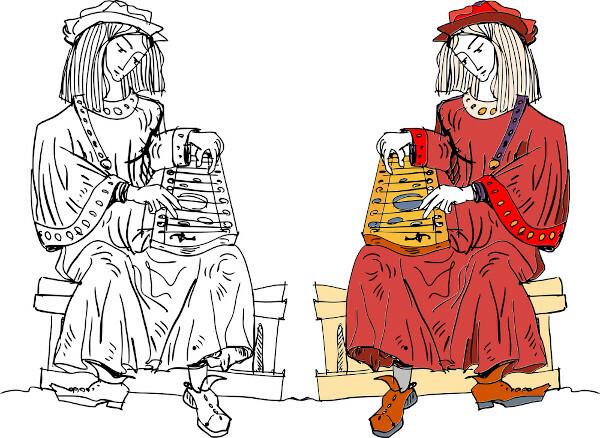Fyodor Mikhailovitch Dostoevsky was a Russian writer, journalist and philosopher.
Dostoevsky's literary works are known to explore the psychological of individuals, as he says. respect for social, political, religious, philosophical and spiritual contexts of the Russian society of the century XIX.
Dostoevsky and literature
Dostoevsky was a writer of novels, short stories and literary essays.
One of the main characteristics of Fyodor Dostoevsky's works is the profound way in which psychological issues were addressed through the characters.
The writer's most famous works show his ability to analyze pathological states of mind, which can lead human beings to have insane behaviors and/or to commit murder or suicide.
In his works, Dostoevsky addressed themes such as anger, a personal self-destruction and the humiliation, between others.
Works by Dostoevsky that stand out for their psychological factor
Below is a summary of Dostoevsky's main works that explore the psychological side of the human being.
Underground Memories (1864)
The main character in the story talks about himself in a humiliating way, and finds himself unable to act confidently and make decisions.
Due to the fact that he considers himself a weak and cowardly person, he ends up spending his days underground.
Crime and Punishment (1866)
Because of the way it exposes the thoughts of a criminal mind, the work is considered practically a psychological essay.
The story is based on a crime and its consequences for the criminal.
The theme is covered by the remorse, O delirium, the concept of morally correct, you internal dialogues of the human being, the fault it's the afraid of disappointing.
the idiot (1869)
Story of a character whose nature is dominated by love, forgiveness and kindness. These characteristics make him end up forgiving too much, to the point of allowing himself to be abused.
The work usually awakens in its readers a contradictory relationship with regard to what is felt in relation to such kindness: admiration, but also a hint of revolt.
The demons (1872)
The work was inspired by the murder of a young student by a nihilist group, which took place in Russia in 1869.
The story is a fictional recreation of the fact, and makes a profound political, social, philosophical and religious reflection of the time.
The title of the work alludes to the demons that had an impact on that society: violence, terrorism and ideologies, among others.
The Karamazov Brothers (1881)
Without a doubt, it is Fyodor's most highly regarded work. It even influenced thinkers like Nietzsche and Freud.
The plot is based on a dysfunctional family, formed by a neglectful father towards his children and who was disrespectful to his wives in both of his marriages.
The theme of the story covers the free will, a faith in God it's the atheism, between others.
The plot revolves around the relationship between a father and his three children: the first has a bipolar temperament; the second is extremely intelligent, owner of a brilliant mind that questions, for example, the moral classification of what is part of good and what is part of evil; the third is an extremely kind young man, who bases his actions on a commitment to do good.
There is also a fourth child, who is the result of a rape, and whose behavior shows traits of extreme malice, as well as excessive service.
To also know the biography of Nietzsche and Freud, consult the contents indicated below.
- Nietzsche: biography, main thoughts and curiosities
- Sigmund Freud: psychoanalysis, theories, biography and works
Other works by Dostoevsky

Check out some more of Dostoevsky's iconic books.
- poor people (1846)
- the double (1846)
- white nights (1848)
- prince's dream (1859)
- Humiliated and offended (1861)
- Memories from the House of the Dead (1862)
- The player (1867)
- the teenagers (1875)
Dostoevsky and philosophy
Dostoevsky is considered the father of existentialism in literature.
Existentialism is a philosophical current of thought that highlights the importance of the individual's existence as a major part of creating a philosophical concept.
According to this current, man is free and responsible for his own destiny.
At work The Karamazov brothers, the traces of existentialism are evident through the complex relationship between a father and his children, both in terms of the psychological and the emotional factors.
Another philosophical current that can be observed in the works of Fyodor Dostoevsky is the nihilism, doctrine according to which nothing is absolute, and where there is a skeptical view that questions different interpretations of reality.
One of the characters from The Karamazov brothers, questions, for example, the existence of God and states:
If God doesn't exist, then everything is allowed.
Learn about philosophical currents such as existentialism and nihilism.
- Existentialism: what it is, characteristics and main philosophers
- Nihilism: meaning and main philosophers
Philosophy: origin, philosophical currents and main philosophers
Dostoevsky and politics
Dostoevsky was one of the young Russians most engaged in the fight against the authoritarianism of the Tsar Nicholas I.
On account of his activism, in 1849 he was sentenced to death for having joined a socialist group (Petrashevski Circle) against the government.
Along with other convicts, he was taken to carry out the sentence. However, at the last minute he had his sentence replaced by a 5-year period of exile in Siberia.
The writer was sent to a prison system where detainees were distributed across labor camps in order to serve their sentences by performing forced tasks.
During the period he was imprisoned in Siberia, Fyodor had his first epileptic fit, disease that accompanied him throughout his life and that even influenced the creation of some of his characters.
In 1854, he finally leaves prison and starts serving a sentence of military service.
It complements your studies with the indicated contents.
- Socialism: history, types and curiosities
- Politics: meaning and different regimes
Dostoevsky and journalism
Fyodor Dostoevsky was one of the most emblematic journalists of his time and, on several occasions, he caused controversy because of his reflections.
Along with his brother Mikhail, he owned a monthly newspaper called Time.
Also, he founded a magazine named Era and was editor-in-chief of the newspaper Citizen, where he created his own column: A writer's diary.
A highlight of his journalistic career was the fact that he was the only one to write and also edit the publication, a case unpublished so far.
Dostoevsky's Phrases
Get to know some of Dostoevsky's best-known phrases.
We know a man by his laughter; if the first time we meet him he laughs pleasantly, the intimate is excellent.
The secret of human existence is not just in living, but also in knowing what you live for.
The greatest happiness is when a person knows why he is unhappy.
Rest assured that it was not when he discovered America, but when he was discovering it, that Columbus felt happy.
I have to proclaim my disbelief. For me there is nothing higher than the idea of the non-existence of God. Man invented God in order to live without killing himself.
Dostoevsky's personal life
Born October 30, 1821, Fyodor Dostoevsky (sometimes spelled Dostoyevsky) was a native of Moscow and was the second of seven children.

Fyodor's father was a military surgeon who, in addition to providing private care, attended to low-income people at the Mariinsky Hospital, located in Moscow. He was known to be a very rigid, stern and suspicious man.
He died in 1839 under unclear circumstances. It is even believed that he was murdered by his servants, who suffered abuse at his hands.
The Russian writer's mother was descended from a merchant family, and was known to be an extremely affectionate and tolerant mother. She died of tuberculosis in 1837.
Dostoevsky's studies were conducted at home and only after the age of 12 did he attend a school and later a boarding school.
Despite having studied at the Military Academy of Engineering in St. Petersburg, Fyodor was not suited to the profession of engineer. From a young age, the writer showed interest in Gothic fiction and novels. He had among his favorites writers like Friedrich Schiller, Aleksandr Pushkin and Ann Radcliffe.

Due to his greater identification with literature, as soon as he graduated from the Military Academy as a second lieutenant, he asked to be discharged to start his writing career.
He later fell in love with Mary Dmitryevna, who at the time was married to Alexander Ivanovich Isaac and she had a son with him.
After the death of her husband, Mary was proposed to marriage by Dostoevsky, who became his wife in February 1857. In April 1964, he died of tuberculosis.
In 1867, Fyodor remarried. his second wife, by name Anna Dostoevskaya, it was the stenographer who helped him in the production of the work The player. They had four daughters, but only two reached adulthood; the others died before.
One of the most memorable moments in Fyodor's life happened in 1880, with his participation in the inauguration of the monument in honor of Alexander Pushkin (greatest Russian poet of the romantic era), located in Moscow.
During the event, Fyodor delivered a remarkable and, in a way, prophetic speech about the future of Russia in a world context.

The following year, on January 28, Fyodor died of pulmonary hemorrhage, probably caused by emphysema.
Interested in topics related to what you just read? Be sure to consult the texts below!
- Textual polyphony: know the different types
- Jean-Paul Sartre: biography, main works, ideas and phrases
- Martin Heidegger: biography, philosophy, works and phrases
- Virginia Woolf: biography, works and thoughts
- Simone de Beauvoir: biography, works and thoughts
- Gorgias de Leontini: biography, works and main ideas


